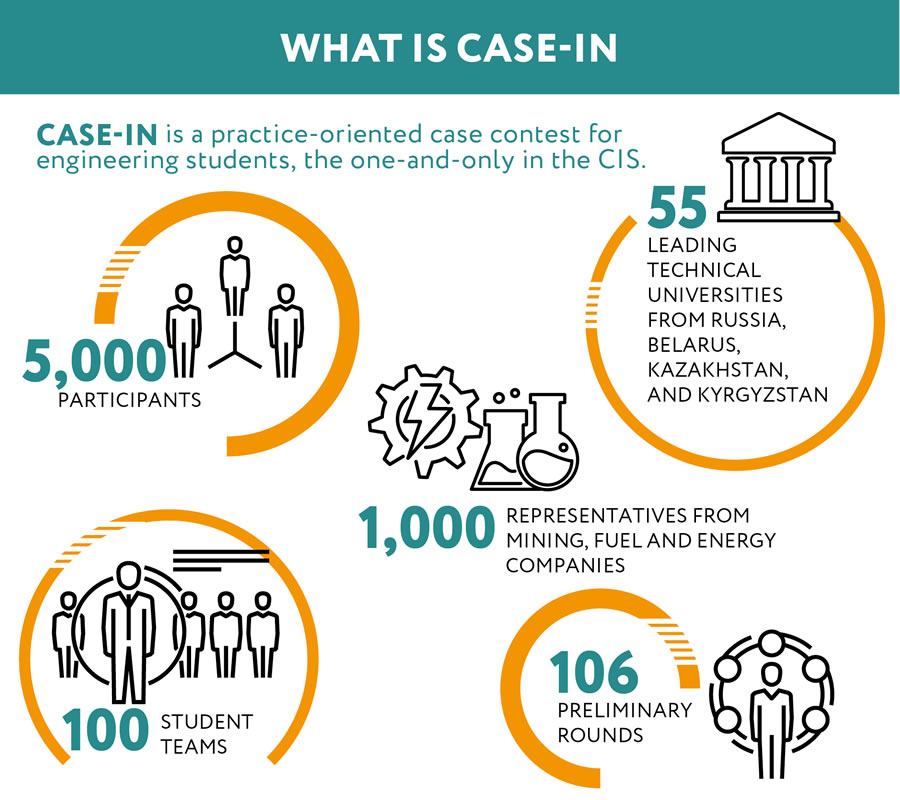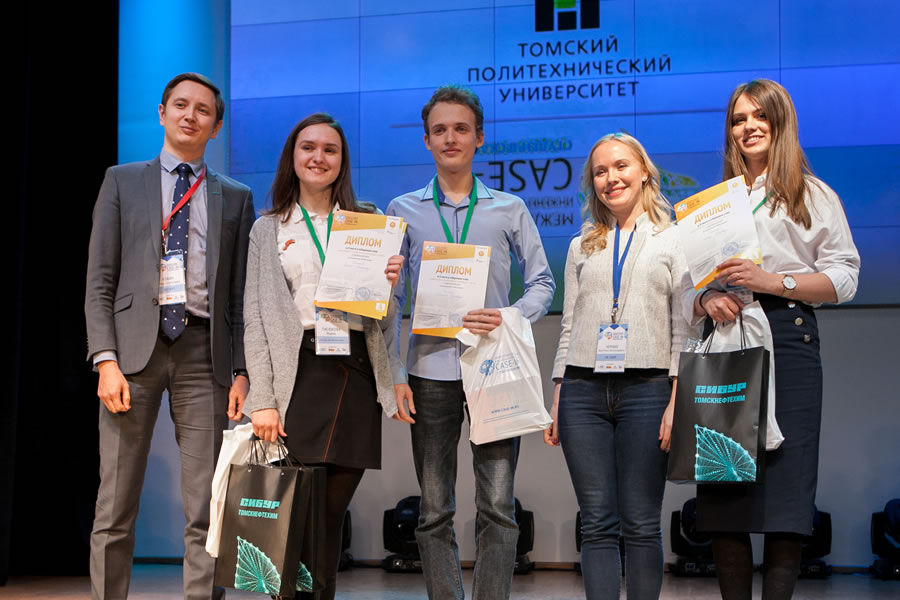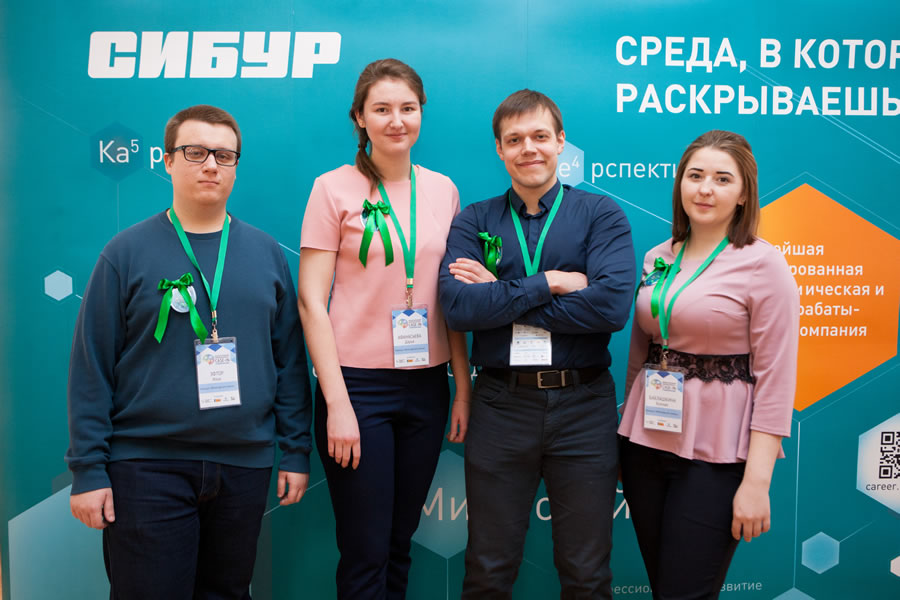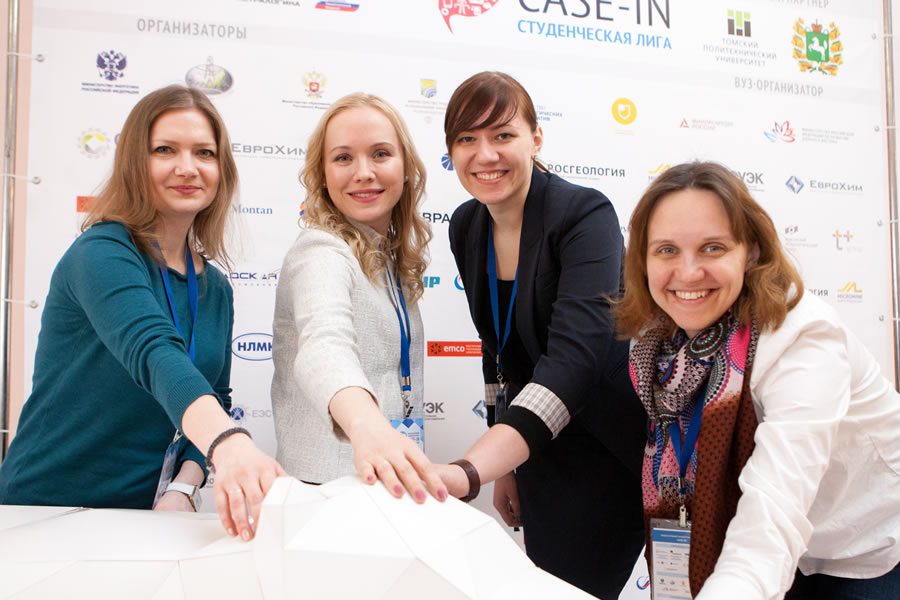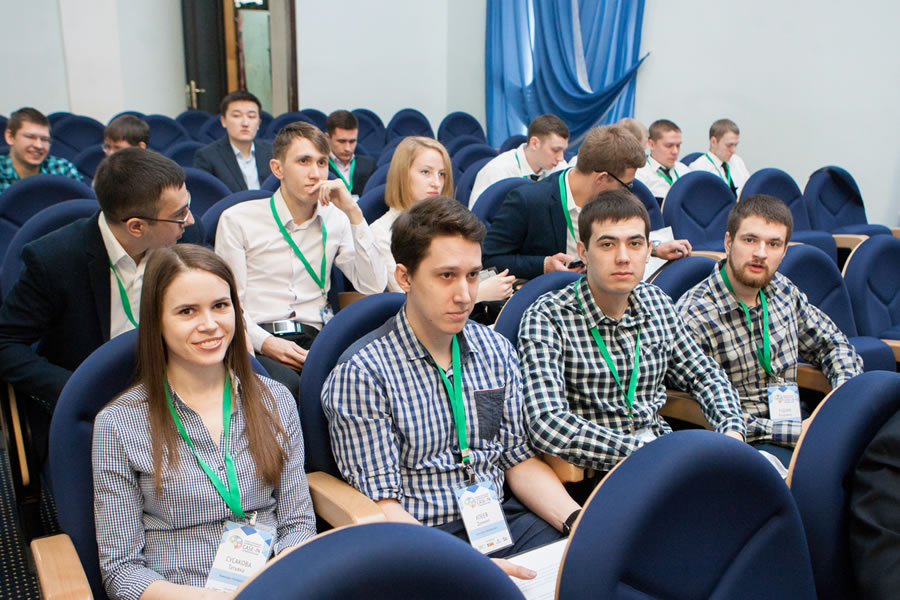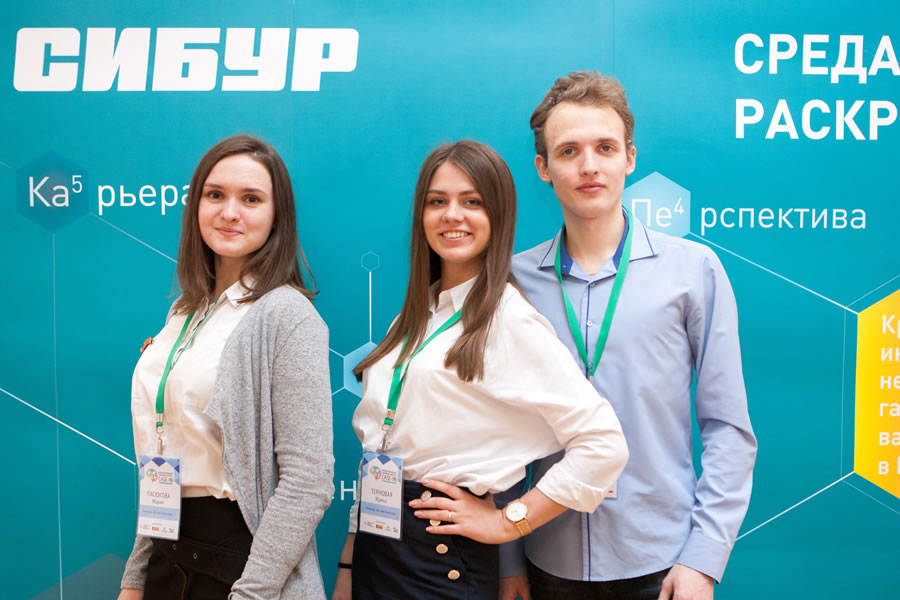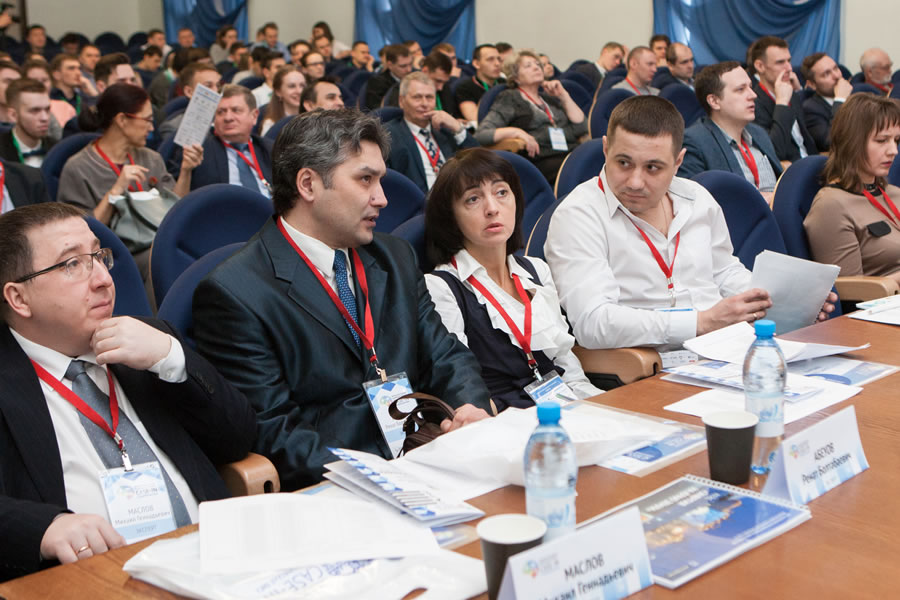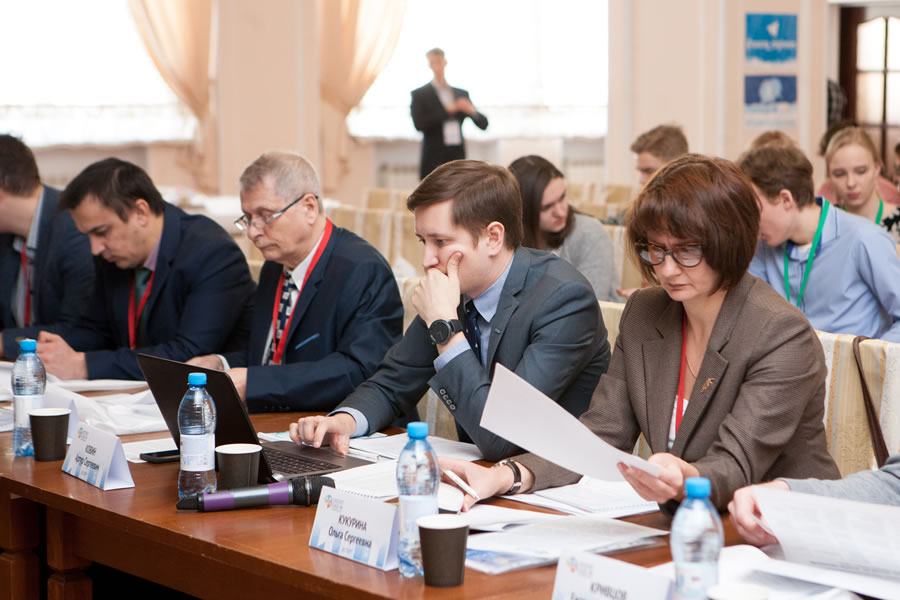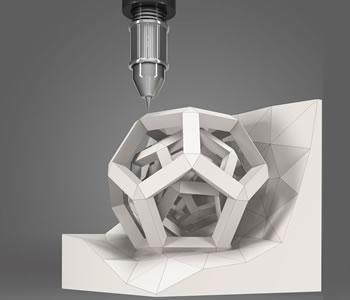The Petrochemistry category of the CASE-IN contest kicked-off in Tomsk at two of the region’s most reputable universities, Tomsk State University and Tomsk Polytechnic University. SIBUR proposed including this nomination in the championship. The Tomsk site hosts monomer, polyolefin and BOPP film production facilities, and the R&D centre. SIBUR has well-established partnerships with research facilities and educational institutions in Tomsk. The city’s universities provide petrochemistry-specific areas of study.
CASE-IN is a suitable platform for social learning thanks to the liberal nature of interaction and communication during the championship.
CASE-IN participants that had chosen the Petrochemistry category were offered a practical case based on ZapSibNeftekhim, a facility under construction in Tobolsk. Students had to identify bottlenecks in gas fractionation and propane dehydration, steam cracking, and polyethylene production processes, come up with innovative solutions and ensure seamless operation of the facility, as well as reduce costs and improve energy efficiency. After a ten-day period to develop their projects, students presented their projects to the jury of experts.
“I liked that the case had a strong reference to real-life tasks and brought participants to an environment where all processes are linked to production. Working on these processes students can apply their academic knowledge,” said Sergey Kudryashov, Deputy Research Director at Petrochemistry Institute of the RAS Siberian Branch. “A case does not merely test knowledge but acts as a powerful educational tool providing a profound insight in the industry to future professionals.”
In the Name of Akhmetov team, second best in the preliminary round.
Learning platform
The expert council is comprised of academics and industry professionals in the proportion of 40% and 60%, respectively.
CASE-IN is a suitable platform for social learning thanks to the liberal nature of interaction and communication during the championship: students can get feedback from experts on virtually any topic and discuss their innovations in detail with a team of professionals. The interaction we see at the championship resembles a well-established horizontal communication and information exchange typical for modern companies.
By the way, the expert council is comprised of academics and industry professionals in the proportion of 40% and 60%, respectively.
“We were lucky – when we were analysing the case after the presentation, we had a chance to talk to an expert who knows polymerisation inside out and to an economist,” said Konstantin Zharnov, captain of a team that passed the preliminary round. “This helped to put our puzzle together at last – and supported our vision of the case as a complex task rather than a list of unrelated problems.”
“This stage of the championship is really valuable,” says Artur Kovin, senior expert at SIBUR’s Technological Efficiency division and a member of the jury. “We can think of expanding the format of communication and allowing more time for it.
The winner is the Philosopher’s Stone team.
No doubt, this championship is also a great opportunity to develop soft skills, they are not industry-specific but help people fully unlock their potential. Teamwork, thinking out-of-the-box, taking responsibility for one’s decisions – employers attach immense value to this kind of skills, because they make a positive impact on production process.”
Insights and analytics
Concerning the insights, participants scrutinised the whole facility. Removing sulphur from feedstock turned up to be a popular idea. The students even “got into” the towers of the gas fractionation unit and proposed replacing trays with special high-tech hard granular packing that aids better separation of gas into constituent fractions. Students believe, with reference to some patents in the field, that advanced packing can significantly improve gas separation performance in towers.
They also explored the issue of processing additives application to improve the quality of polymers and streamline the production process – one of the teams dedicated themselves to polymers and thus was nicknamed Polymer Guys by the experts. The team examined the polymerisation stage and proposed several improvements to its technology.
SIBUR’s representatives at CASE-IN.
Some suggested digitising procurement to integrate and process data arrays on feedstock and equipment supplies.
The pool of digital insights is also interesting. The students have adeptly summarised them and divided into distinct approaches: advanced analytics and digitalisation of processes – streamlining by means of apps and mobile devices, and Industry 4.0 – integration of robotic and gadget solutions into production processes.
Students decided to apply advanced analytics to equipment maintenance, in particular, they proposed a mathematical model to forecast potential failure of the extruder based on tracking its operational data. By and large, it is a big data solution for decision-making.
Some suggested digitising procurement to integrate and process data arrays on feedstock and equipment supplies.
“There were suggestions to implement APCs, Advanced Process Control systems. It has now been demonstrated time and time again – these systems have a positive economic effect anywhere: they secure process stability, help achieve consistent quality, improve energy efficiency, and cut energy costs. Many teams suggested these things; this line of thought is relevant and valuable,” said Artur Kovin.
CASE-IN participants and jury.
Students also “launched” drones, unmanned flying vehicles, that, according to their championship task, were meant to inspect piping insulation at the petrochemical facility.
“Connecting major production processes and the digital is a big and exciting challenge,” said Ilya Eftor, a member of the Tomsk Polytechnic University team, winners of the preliminary round, “I believe that the Russian production sector will be the arena of many technological breakthroughs and cross-industry solutions. The case championship is an opportunity for us, future professionals, to walk through the open door.”
Download PDF

